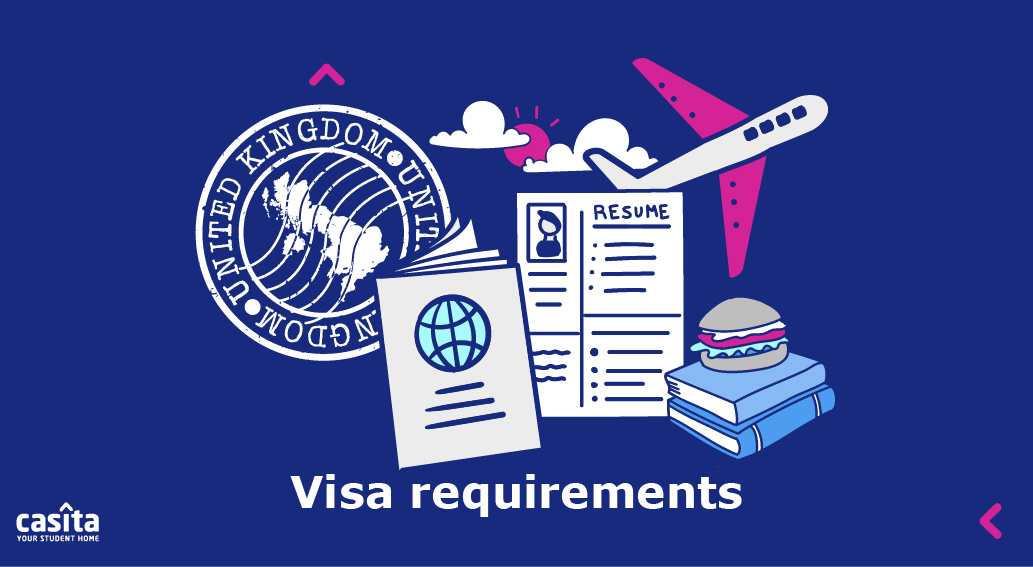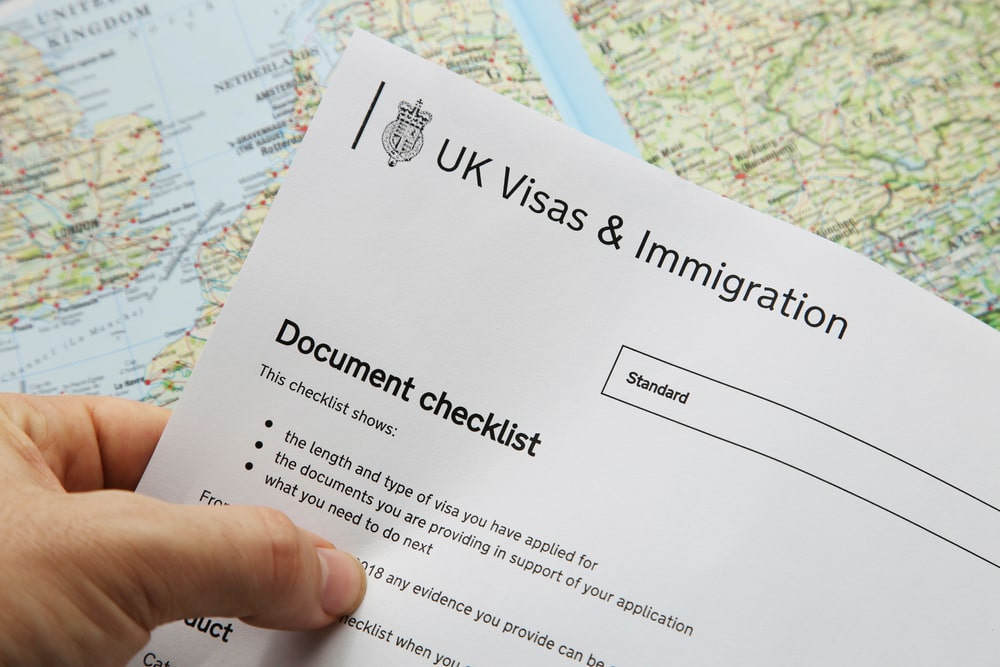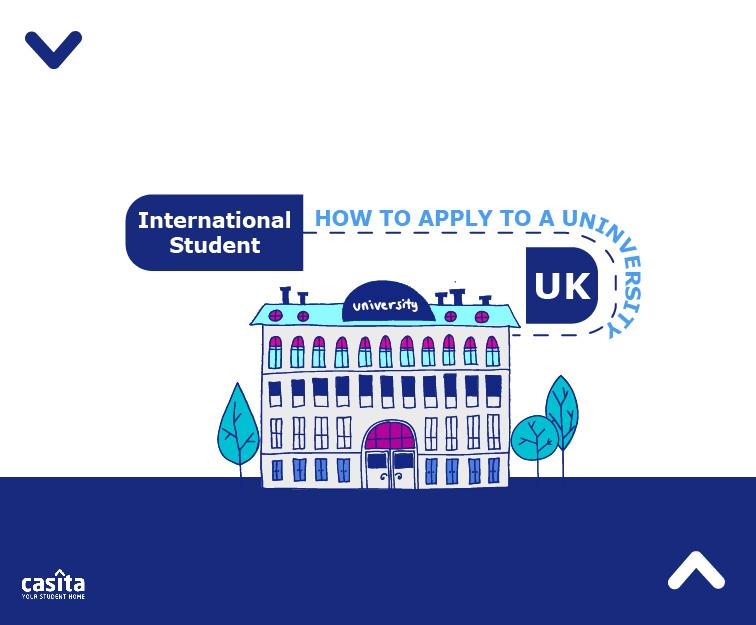UK Study Visa requirements 23/24
Travel Preparation
7 mins read
Share

Updated at: 25 November, 2025
Published at: 23 October, 2022
By Reem Mohamed
UK Study Visa requirements 23/24
Travel Preparation
7 mins read

Updated at: 25 November, 2025
Published at: 23 October, 2022
By Reem Mohamed
Share
The UK is an ever-growing study destination among international students across the globe. With an array of top-ranked universities and world-renowned learning institutions, the UK certainly has a stellar reputation as the go-to study destination. This and its vibrant and eventful student life make the UK a student favourite.
Getting a UK study visa is often the first step to pursuing an education in the country. This process can be long and require multiple steps and documents, but at the end of the day, it is definitely worth it. Before we delve into the requirements for a UK study visa, let us first learn about the country's different types of study visas!
Types of UK Study Visa
Depending on your needs as a student in the UK, there is a visa for it. Here are the available types for a UK Study Visa.
Short-term Study Visa
If you want to head to the UK to study a short course or are planning to stay in the UK for a short period of time, you can apply for a short-term study visa. This visa allows its holder to study in the UK for six months, or it can go up to 11 months if you are taking a short-term English course.
As for the cost, a short-term study visa that lasts up to 6 months costs around £93, while an 11-month short-term study visa costs around £179.
Student Visa aka Student Route
A student visa, also known as a student route, is required for all international students who are planning to study in the UK for a long period of time. This applies to all international students, including those from the EU. This visa application costs around £363.
After learning the types of UK study visas you can apply for, let’s move on to the process itself. The process of acquiring a UK study visa can be quite a challenge. Every year, a few updates to the UK study visa requirements are added, and we’re here to help you prepare to apply for a study visa in 2023-24. If you plan to start a study abroad journey in the United Kingdom, here are the essential visa requirements you need to look out for!

New UK Visa Requirements in 2023-24
To make the visa-acquiring process easier for you, we’ve compiled a list of what is seen as the top seven requirements for getting a UK study visa in 2023-24, so grab a pen and paper, and let’s dive in!
1. General Eligibility Criteria
The general eligibility criteria or qualifications that you need to have in order to qualify for a UK student visa in 2023-24 include the following:
You must be a minimum of 16 years of age.
Your funds must be sufficient enough to cover your course fees as well as your living expenses; you should be able to support yourself financially during your stay.
Your English language proficiency should be at a certain level according to your chosen course of study.
You must have an official offer or acceptance letter from an approved educational institution.
2. A Valid Offer from a UK Educational Institution
One of the first things you need to submit for your UK visa application is an offer from a licensed UK education provider. An offer should be solidified when you receive the Confirmation of Acceptance for Studies (CAS). The CAS is a must-have before applying for a UK study visa; more importantly, you should apply for your visa within six months of receiving your CAS.
3. English Language Proficiency
Before we delve into the exact requirements for English language proficiency, you first need to familiarise yourself with CEFR. CEFR, which is also known as the Common European Framework of Reference for Languages, is made up of three aspects: Learning, Teaching, and Assessment. It mainly aims to provide a structural method of learning, teaching, and assessing that applies to Europe's languages, or in this case, the English language.
If you are applying for an undergraduate course, your proficiency level should be at least CERF level B2, which is equivalent to an IELTS 5.5. For postgraduate courses, a minimum of CEFR level B1 is required or an IELTS 4.0. For a below degree level, you need to pass and have an official certificate of the Secure English Language Test (SELT).
4. Test Results for Tuberculosis
When applying for a student visa in the UK or intending on staying in the country for more than six months, you will be asked to undergo a medical examination for tuberculosis. This is a must for specific countries.
The test is to be performed by approved clinicians. You should first do a chest x-ray test, but if its results are uncertain or inconclusive, then you must proceed with a sputum sample. Upon receiving negative results for tuberculosis, you will get a certificate that is valid for six months from the date of the test.
5. Financial Proof/Proof of Funds
£1,265 are the sufficient monthly funds required to cover your living expenses and pay your UK tuition fees. According to the Confirmation of Acceptance of Studies (CAS), the required funds include the following:
£1,015 per month for living costs if your course is outside of London.
£1,265 per month if your course is in London.
£2,530 for London courses (if you are on the Doctorate Extension Scheme).
£2,030 for courses outside London (if you are on the Doctorate Extension Scheme).
You may be exempt from showing proof of funds if you meet any of the following criteria:
You had a valid visa previously for the UK for a minimum of 12 months.
Your country is listed under the ‘differential evidence requirement’.
Your application states you as a student union sabbatical officer.
6. Immigration Healthcare Surcharge (IHS)
If you want to stay in the UK for more than six months, then you must pay the Immigration Healthcare Surcharge (IHS). The amount you need to pay varies depending on how long you’re planning to stay in the country.
If you are staying for less than six months, you’re expected to pay half the annual amount. If you’re staying more than six months, then you should pay the full annual amount.
Paying for the IHS gives you access to use the National Health Service (NHS). This, however, doesn’t cover everything; you still have to pay for dental treatments, prescriptions, assisted conception, eye tests, and other auxiliary treatments.
7. Required Documents
The documents needed for your UK visa application are plenty, and in order to make sure you don’t miss any, we’ve compiled them all in this list for you. So, jot them down in a checklist to avoid forgetting anything!
A valid passport
A visa application form
A passport-sized recent photograph
A CV
Family Registration Certificate (FRC)
Academic Technology Approval Scheme (For researchers)
Proof of payment for the visa fee/visa application fee
Proof of funds/financial evidence
Confirmation of Acceptance for Studies (CAS)
Valid Academic Technology Approval Scheme (ATAS) certificate (If needed)
Medical test results for tuberculosis
Payment of the Immigration Healthcare Surcharge (IHS)
Written agreement from financial sponsor (in case of sponsorship)
Police clearance certificate
Polio and COVID vaccination certificates (For specific cases only)
Marriage and children’s birth certificates (For married applicants with children)
Copies of all the mentioned documents
For students under the age of 18, a few additional documents are required:
Proof of consent from a parent or a legal guardian
Evidence of relationship with a parent or legal guardian
Copy of birth certificate or any government document that displays the names of parents
Additional UK Visa Requirements
A few amendments, updates, and additions have been made to the overall requirements for a UK student visa. These changes were mainly put into place to make things easier for international students. Here are some of the updates you should look out for during your visa application process!
Replacing free movement with the UK’s new point-based immigration system; there is no limit to international students entering the UK through this route.
Priority will be given to highly skilled individuals, especially ones with scientific, academic, and technology-related qualifications.
All those who are looking to enter the UK to work or study will need to apply for permission in advance.
Some amendments to the post-work study visa (PSW) have been made as well, including the following:
Students are now able to work and live in the UK for 3 years after completing a PhD.
2 years is the allowed period for Master’s degree holders to live and work in the country.
The PSW visa can be extended by the government for Master’s holders from 2 to 4 years.
The UK is making it easier for students from all over the world to apply for universities there and start off their study abroad journey the right way in the country. The UK visa requirements are getting easier and more attainable, especially with guides like this one and others available for you to follow! We also have a few tips for you to ace your visa interview and have nothing to worry about moving forward!
So, if you’re considering the UK as a study abroad destination and were worried about the long and tiring visa application process, worry not! We’ve got you covered! Pack your bags, and head on there already! What are you waiting for?
Frequently Asked Questions
1. What are the new rules for a Student visa for the UK in 2023?
In order to successfully apply for the UK student visa, you must be over 16 and have a confirmed space on a course which is also a licensed student sponsor. You should also have enough money to support yourself while you study in the UK. You'll also need consent from your parents if you are only 16 or 17.
2. How long does it take to get a Student visa for the UK in 2023?
Short-term study visas in the UK take an average of 3 weeks. If you’re applying from inside the UK to switch into or extend a Student or Child Student visa, an application for permission to stay can be submitted up to 3 months before the start date of the course.
3. What is the 28-day rule for a UK visa?
The funds you use for maintenance must be in your account for a consecutive period of 28 days. Your application will be refused if you will not meet the Home Office requirements or if this money drops below the required amount even for a single day.
Travel Preparation
By Reem Mohamed
Share
Travel Preparation
Updated at:
Published at:
By Reem Mohamed
Share

-min.jpg)





